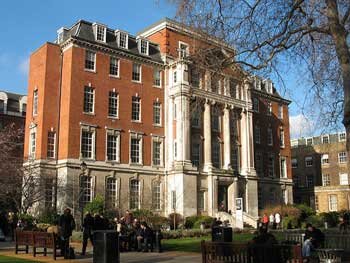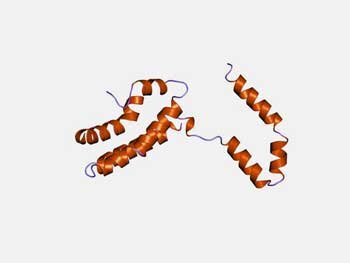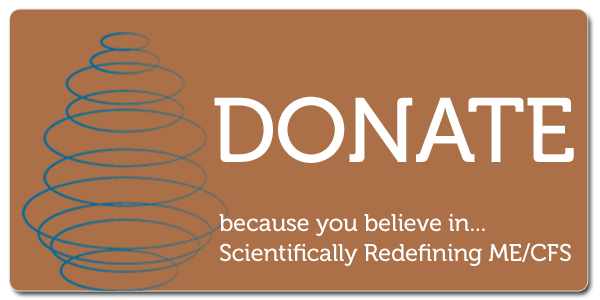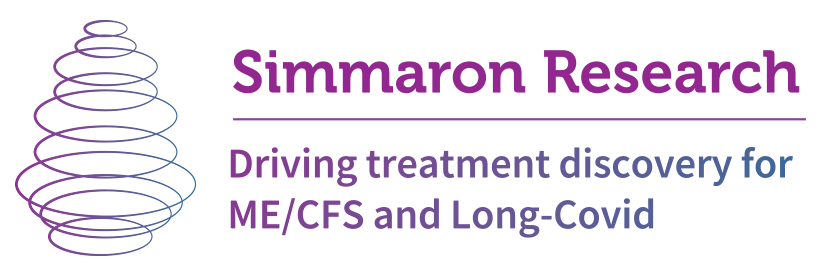Immune Factor May Jump Start Chronic Fatigue Syndrome (ME/CFS)
"For the first time, we have shown that people who are prone to develop a CFS-like illness have an overactive immune system, both before and during a challenge to the immune system. Our findings suggest that people who have an exaggerated immune response to a trigger may be more at risk of developing CFS." Alice Russell
This British study is interesting in so many ways. Most importantly, it draws a link between an overactive immune system and CFS-like chronic illness in Hepatitis C patients who were studied before and after treatment with an immune stimulant. The authors believe it may tell us why some people come down with chronic fatigue syndrome (ME/CFS) after an infection. If so the Brits have found the first predictive blood factor for ME/CFS.Psychoneuroendocrinology. 2018 Dec 14. pii: S0306-4530(18)30196-3. doi: 10.1016/j.psyneuen.2018.11.032. Persistent fatigue induced by interferon-alpha: a novel, inflammation-based, proxy model of chronic fatigue syndrome. Russell A1, Hepgul N2, Nikkheslat N3, Borsini A4, Zajkowska Z5, Moll N6, Forton D7, Agarwal K8, Chalder T9, Mondelli V10, Hotopf M11, Cleare A12, Murphy G13, Foster G14, Wong T15, Schütze GA16, Schwarz MJ17, Harrison N18, Zunszain PA19, Pariante CM20.It is interesting in one way, because it comes out of King's College London - the longtime home of Simon Wessely, the British psychologist who developed the cognitive behavioral therapy (CBT) and graded exercise therapy (GET) approach to chronic fatigue syndrome (ME/CFS). Wessely, a leader of the biopsychosocial approach to ME/CFS, championed the idea that psychological and social factors largely perpetuate ME/CFS. Psychiatrists Trudy Chalder and Mathew Holtorf also hail from King's College. (Anthony Cleare, another psychiatrist from King's College, has done substantial research into the HPA axis in ME/CFS over the past 20 years. Cleare's 1995 paper used cortisol tests to differentiate ME/CFS from depression.) Six years ago Medical Express reported that the PACE Trial - which Kings College researchers participated in - proved that CBT/GET practices "provide good value for the money". Three years ago Queen Mary College of London and King's College London dug their feet in to prevent the release of the raw PACE data. It was King's College that called the attempt to get the data "vexatious," which in legal terms basically means without merit. The PACE findings are now in the throws of being discredited.The study is also interesting because it was funded by the Medical Research Council (MRC), a United Kingdom based governmental agency that funds medical research. The MRC, which helped fund the PACE trial, has been a mixed bag. Funded studies on ethnicity, risk factors (biopsychosocial risk factors) and CBT speak to a strong behavioral thrust. However, the MRC has also funded studies on the mitochondria, the autonomic nervous system and now on an immunological model of ME/CFS. A new generation of psychiatrists from King's College appear to be taking a different tack. Carmine Pariante, who has focused for years on the physiological roots of depression, has been using hepatitis C patients to try and understand how immune mediated fatigue and depression arise.
Six years ago Medical Express reported that the PACE Trial - which Kings College researchers participated in - proved that CBT/GET practices "provide good value for the money". Three years ago Queen Mary College of London and King's College London dug their feet in to prevent the release of the raw PACE data. It was King's College that called the attempt to get the data "vexatious," which in legal terms basically means without merit. The PACE findings are now in the throws of being discredited.The study is also interesting because it was funded by the Medical Research Council (MRC), a United Kingdom based governmental agency that funds medical research. The MRC, which helped fund the PACE trial, has been a mixed bag. Funded studies on ethnicity, risk factors (biopsychosocial risk factors) and CBT speak to a strong behavioral thrust. However, the MRC has also funded studies on the mitochondria, the autonomic nervous system and now on an immunological model of ME/CFS. A new generation of psychiatrists from King's College appear to be taking a different tack. Carmine Pariante, who has focused for years on the physiological roots of depression, has been using hepatitis C patients to try and understand how immune mediated fatigue and depression arise.
A Model for ME/CFS?
It turns out that when hepatitis C patients are given interferon-alpha (IFN-a) about a third of them develop severe fatigue and/or become depressed. The realization that an immune activating drug was causing fatigue and depression in those who were not fatigued or depressed before was a revelation to the medical community. That led to the idea of sickness behavior, which posits that during an infection, the brain and immune system induce symptoms (flu-like symptoms) that force individuals to isolate themselves, stopping the spread of the infection. Since many people with chronic fatigue syndrome (ME/CFS) are by definition caught in a chronic case of "sickness behavior" (a chronic illness state triggered by an infectious event), hepatitis C patients provide the possibility of real insights into ME/CFS. If researchers can determine how immune activation triggers flu-like symptoms and/or depression in people being treated for hepatitis, they may get clues to what is going on with ME/CFS.In an action that proved enormously helpful, the group took baseline measures of immune activation prior to the introduction of the interferon drug, and then afterwards. They also assessed psychological factors and metabolites associated with the kynurenine system.
Since many people with chronic fatigue syndrome (ME/CFS) are by definition caught in a chronic case of "sickness behavior" (a chronic illness state triggered by an infectious event), hepatitis C patients provide the possibility of real insights into ME/CFS. If researchers can determine how immune activation triggers flu-like symptoms and/or depression in people being treated for hepatitis, they may get clues to what is going on with ME/CFS.In an action that proved enormously helpful, the group took baseline measures of immune activation prior to the introduction of the interferon drug, and then afterwards. They also assessed psychological factors and metabolites associated with the kynurenine system.
THE STUDY
Psychological Factors Play No Role
In a finding that must have disappointed Trudy Chalder and Mathew Hotopf - who were also part of the study - psychological factors struck out on all counts. Neither a history of depression, stressful life events in the prior six months or early life trauma had any effect on those who became ill following the IFN-a administration.
Cytokines Not Perpetuating Fatigue
Cytokines weren't, strictly speaking, perpetuating fatigue in the ill hepatitis C group either. The cytokine levels in both the recovered and the still fatigued hepatitis C patient were similar.They may, however, have triggered it.
Possible Predisposing Factor Identified
The hepatitis patients who came down with severe fatigue demonstrated increased IL-10 and IL-6 levels early on - very early on. In fact, hepatitis C patients who became ill had high IL-10 levels BEFORE they received the drug. High levels of IL-6, a pro-inflammatory cytokine which has been associated with fatigue, were found early in the illness. The researchers speculated that patients' immune systems were primed to take off prior to their receiving the drug - and it was this immune priming which lead them to become ill after taking the drug.Six months later their IL-10 levels, interestingly, were normal - suggesting that IL-10 had done it's work quickly and then faded into the background, leaving behind a chronic state of fatigue.The beauty of this study is that it identifies possibly the earliest blood factor yet - increased IL-10 levels - that may set someone on the path to developing ME/CFS.While the authors didn't attempt to explain how these factors produce ME/CFS, some possibilities immediately present themselves. Higher than normal IL-10 levels could suppress one's ability to quickly clear an infection. High IL-10 levels and several IL-10 polymorphisms have also been associated with the development of lupus, an autoimmune disorder.Andrew Miller of Emory University has some ideas of his own.
The researchers speculated that patients' immune systems were primed to take off prior to their receiving the drug - and it was this immune priming which lead them to become ill after taking the drug.Six months later their IL-10 levels, interestingly, were normal - suggesting that IL-10 had done it's work quickly and then faded into the background, leaving behind a chronic state of fatigue.The beauty of this study is that it identifies possibly the earliest blood factor yet - increased IL-10 levels - that may set someone on the path to developing ME/CFS.While the authors didn't attempt to explain how these factors produce ME/CFS, some possibilities immediately present themselves. Higher than normal IL-10 levels could suppress one's ability to quickly clear an infection. High IL-10 levels and several IL-10 polymorphisms have also been associated with the development of lupus, an autoimmune disorder.Andrew Miller of Emory University has some ideas of his own.
Miller Time
Andrew Miller, PhD also believes that the ‘sickness behavior’ he finds in hepatitis C patients given IFN-a is similar to what's happening in ME/CFS. Miller, however, came to that conclusion, by looking at the brain.He found reduced activation of the striatum - a part of the basal ganglia that produces dopamine - in fatigued hepatitis C patients and people with ME/CFS. This finding suggested that reduced dopamine levels in ME/CFS may be producing problems with motor activation (physical activity) and fatigue. Indeed, primate studies indicate that immune activation in the presence of low dopamine levels results in enormous fatigue, motor slowing, and depression.https://www.healthrising.org/blog/2014/09/15/unrewarding-reward-basal-ganglia-inflammation-fatigue-chronic-fatigue-syndromeAnother study, taking a deeper look at what happens to a brain on IFN-a, found it took just four hours for IFN-a to produce microstructural changes in the left striatum - changes that were "strikingly correlated" with the development of fatigue. The authors reported that increased levels of lactate and altered pH - two problems found in ME/CFS - may set the stage for these microstructural abnormalities.https://www.healthrising.org/blog/2016/04/06/immune-system-fatigue-brain-me-cfs-fibromyalia/
Immune Hypersensitivity Syndrome?
This presents the possibility that infection-produced inflammation could knock out dopamine production permanently, leaving behind - and this may be the important part - a hypersensitized reaction to inflammation. Miller believes that dopamine deprivation causes the basal ganglia to over-respond to inflammatory signals, resulting in the fatigue and other symptoms associated with “sickness behavior”.That sickness behavior includes mood changes. The British group found that a "biological sensitivity", or over-reaction to IFN-a, predicted who would come down with depression while on the drug.When Anthony Cleare of King's College trashed Montoya's cytokine findings last year because they didn't show cytokine elevations, he missed the point that Montoya's results may have pointed to a possible exquisite sensitization to cytokines in ME/CFS.
Conclusion
It was very good to see an MRC-funded physiological study pan out and get such abundant media coverage. Thankfully, Lenny Jason is in a good position to follow up on this study result to see if IL-10 is indeed raised in young people who fail to recover from infectious mononucleosis. If that pans out, the first predisposing factor for ME/CFS in the blood will have been found.That finding will then give us an entry point to determining how ME/CFS comes about. Avindra Nath's and Derya Unutmaz's studies of short-duration post-infectious ME/CFS patients would hopefully be able to piggyback on the British finding and begin to unravel the genesis of ME/CFS.The basal ganglia/hepatitis connection is fascinating because it suggests that the Brits' hypothesis, that fatigued hepatitis C patients present a good model for ME/CFS, may be correct. Andrew Miller's and other studies suggests that the brain changes in ME/CFS replicate those of the fatigued hepatitis C patients. Interestingly, they affect the basal ganglia - a part of the brain involved in motor activation (physical movement), learning, cognition and fatigue.Miller's hypothesis that inflammation may knock out dopamine production in the basal ganglia resulting in a hypersensitization to immune signals in ME/CFS is compelling. Neuroinflammation has been linked to microglial activation and reduced dopamine levels. Plus two studies have found reduced basal ganglia activation in FM. One study suggested the basal ganglia could be causing the movement problems in FM.https://www.healthrising.org/blog/2015/09/20/spinning-fibromyalgia-brain-findings-suggest-dopamine-may-be-key/Given that the basal ganglia affects movement, fatigue and reward, it would seem to present a rich vein for ME/CFS researchers to mine. In other fields, researchers would probably be vigorously digging away at a vein with this much potential ore in it, but in ME/CFS researchers are just scratching the surface. Getting more out of the research community will require that the federal government fulfill its promise to invigorate this field.In the meantime, it's good to see the MRC and the Brits, psychiatrists most of them (!), make good on a physiological study, hopefully set the stage for more to come.
